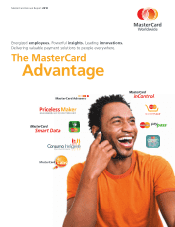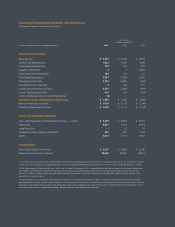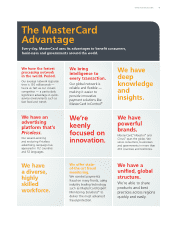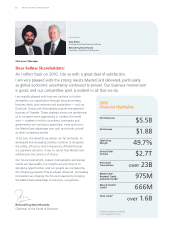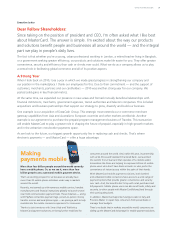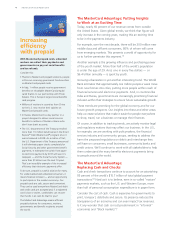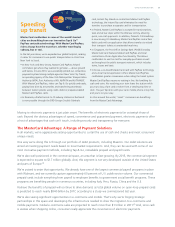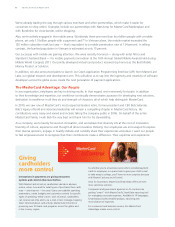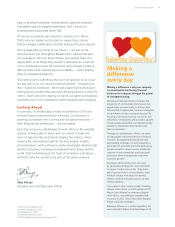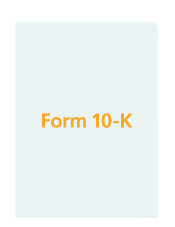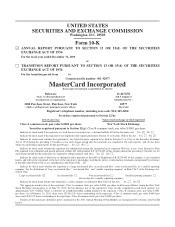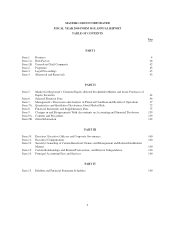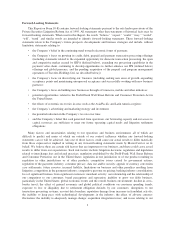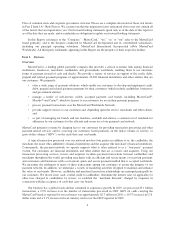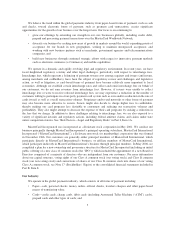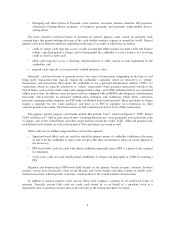MasterCard 2010 Annual Report Download - page 6
Download and view the complete annual report
Please find page 6 of the 2010 MasterCard annual report below. You can navigate through the pages in the report by either clicking on the pages listed below, or by using the keyword search tool below to find specific information within the annual report.
4 MasterCard Annual Report 2010
With MasterCard prepaid cards, unbanked
workers can collect their paychecks and
governments can pay out social benefi ts
and tax refunds.
Consider this:
• Thanks to MasterCard prepaid solutions, people
in Peru are receiving government food vouchers
on MasterCard prepaid cards.
• In Italy, 1 million people receive government
benefi ts on reloadable MasterCard prepaid
cards thanks to our partnership with Poste
Italiane. This is Europe’s largest social benefi ts
card program.
• Millions of workers in countries from China
to the U.S. now receive their salaries on
MasterCard prepaid cards.
• In Russia, MasterCard is a key partner in a
project designed to deliver social services
benefi ts to millions of Russian citizens who
don’t have bank accounts.
• The U.S. Department of the Treasury enrolled
more than 1.5 million benefi ciaries in the Direct
Express® Debit MasterCard® program since it
was introduced in 2008. As a matter of fact,
the U.S. Department of the Treasury announced
it will eliminate paper checks completely for
Social Security and other government benefi t
payments. It estimates the switch from paper
to electronic payments by 2013 will save U.S.
taxpayers — and the Social Security System —
more than $1 billion over the next 10 years.
That’s an incredible example of the increased
effi ciency that electronic payments offer.
To be sure, prepaid is a useful solution for many.
For under-banked and unbanked consumers, it
means fi nancial inclusion — and an opportunity
to participate in the modern economy. Our
prepaid cards are safe, secure and convenient.
They can be used everywhere MasterCard debit
and credit cards are accepted and, if a registered
card is lost or stolen, cardholders can recover
their funds. Can cash do that for you?
The MasterCard Advantage means effi cient
prepaid solutions for consumers, workers,
governments and benefi t recipients around
the world.
The MasterCard Advantage: Putting Insights
to Work at an Exciting Time
Today, nearly 60 percent of our revenue comes from outside
the United States. Given global trends, we think that fi gure will
only increase in the coming years, making this an exciting time
to be in the payments industry.
For example, over the next decade, there will be 300 million new
middle class and affl uent consumers, 80% of whom will come
from emerging markets. This presents a world of opportunity for
us to further penetrate this segment.(1)
Another example is the growing infl uence and purchasing power
of the youth market. More than half of the world’s population
is under the age of 29. And, one in every fi ve dollars — or
$6.4 trillion annually — is spent by youth.
Growing urbanization is yet another interesting trend. The World
Bank estimates that approximately one million people a week move
from rural homes into cities, putting more people within reach of
fi nancial services and electronic payments. And, in countries like
India and Russia, governments are increasingly prioritizing fi nancial
inclusion within their strategies to ensure future sustainable growth.
These trends are promising for the global economy and for our
future growth prospects. Our insights into these and other areas
help us create solutions that make it easier for people everywhere
to shop, travel, run a business or manage their fi nances.
Of course, in addition to tracking trends, we actively monitor legal
and regulatory matters that may affect our business. In the U.S.,
for example, we are working with policymakers, the fi nancial
services industry and community groups, seeking to address the
harm the proposed regulations on debit card interchange fees
will have on consumers, small businesses, community banks and
credit unions. We’ll continue to work with all stakeholders to help
them understand the many benefi ts electronic payments bring
to people around the world.
The MasterCard Advantage:
Replacing Cash and Checks
Cash and check transactions continue to account for an astonishing
85 percent of the world’s $15.7 trillion of total global payment
transactions.(2) Hard as it is to believe, even in so-called “mature”
payments markets, such as the U.S. and Western Europe, more
than half of personal consumption expenditure is in paper form.
Consider the cost of cash. Cash is expensive for governments to
print, transport, distribute and secure. Its presence reduces the
transparency of an economy and can even impact tax revenues.
Is it any wonder that cash is most predominant in “informal”
economies and “black markets”?
Increasing
effi ciency
with prepaid

